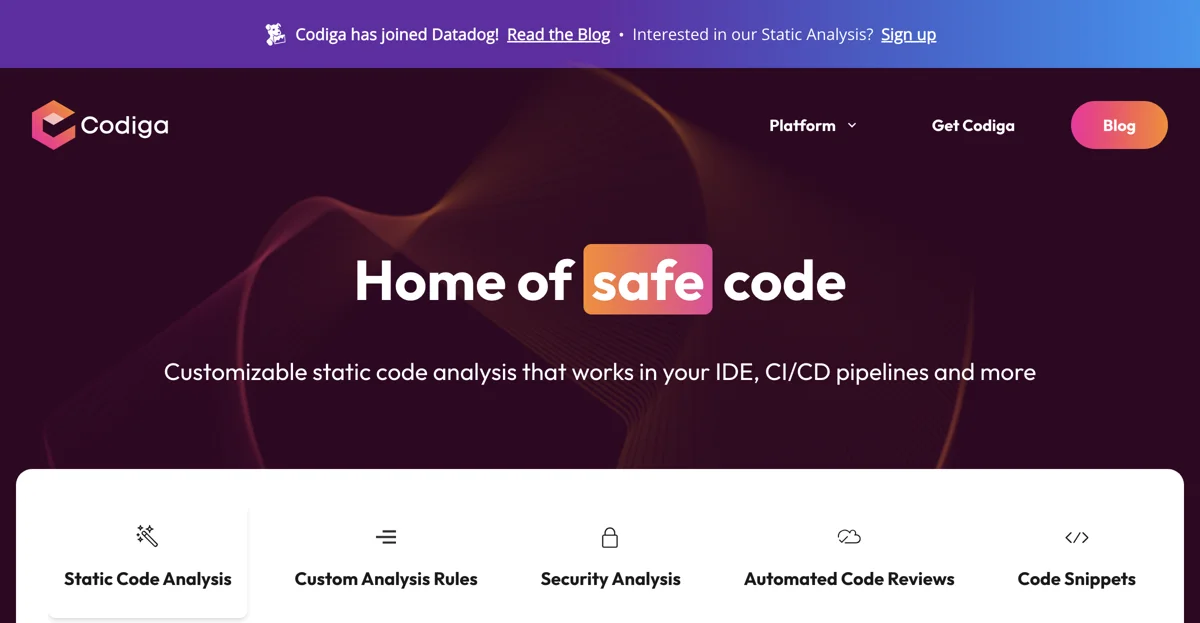Codiga is a powerful static code analysis tool that offers a customizable experience. It works in various IDEs, CI/CD pipelines, and more. Users can design their own static code analysis rules in just five minutes using rules from the Codiga Hub. Codiga provides real-time analysis and fixes in the IDE, helping to fix vulnerabilities and coding issues with a single click. It also checks code before pushing to ensure it meets quality standards. Additionally, it analyzes each pull request, flagging any code violations. Codiga supports the most popular languages and libraries, making it a valuable tool for developers looking to improve their code quality.

Codiga
Codiga offers real-time static code analysis, customizable rules, and supports multiple platforms to improve code quality.

Top Alternatives to Codiga
Fine
Fine is an AI-powered code assistant that boosts software development
GitLab Duo Code Suggestions
GitLab Duo Code Suggestions boosts coding efficiency
GitFluence
GitFluence is an AI-powered Git command finder that saves time
Dosu
Dosu is an AI-powered code assistant that simplifies maintenance
Code Snippets AI
Code Snippets AI is an AI-powered code assistant that boosts productivity
CodeSandbox
CodeSandbox is an AI-powered cloud dev environment that boosts productivity
Codiga
Codiga is an AI-powered static code analysis tool that enhances code quality
EffectiveSoft Corporation
EffectiveSoft is an AI-powered software dev company that delivers quality solutions
Amazon Q Developer
Amazon Q Developer is an AI-powered assistant for efficient software development
New Relic CodeStream
New Relic CodeStream enhances code performance with telemetry
CodeWP
CodeWP is an AI-powered tool that simplifies WordPress tasks
Gitpod
Gitpod is an AI-powered dev environment that boosts productivity
Code Coach
Code Coach is an AI-powered interviewer that helps you prepare
Stenography
Stenography is an AI-powered code documentation tool that simplifies the process
Jam | AI Debugging Assistant
Jam is an AI-powered debugging assistant that simplifies bug resolution
TLDR
TLDR is an AI-powered code explainer that saves developers time
Kodezi
Kodezi is an AI-powered code assistant that fixes bugs and improves codebases.
Cursor
Cursor is an AI-powered code editor that boosts productivity
MERN.AI
MERN.AI is an AI-powered web dev tool that simplifies projects.
Gerrit Code Review
Gerrit Code Review boosts code discussions and workflow management
Dashwave
Dashwave is an AI-powered mobile app development assistant that accelerates feature development, bug fixes, and code documentation for Android and iOS platforms.